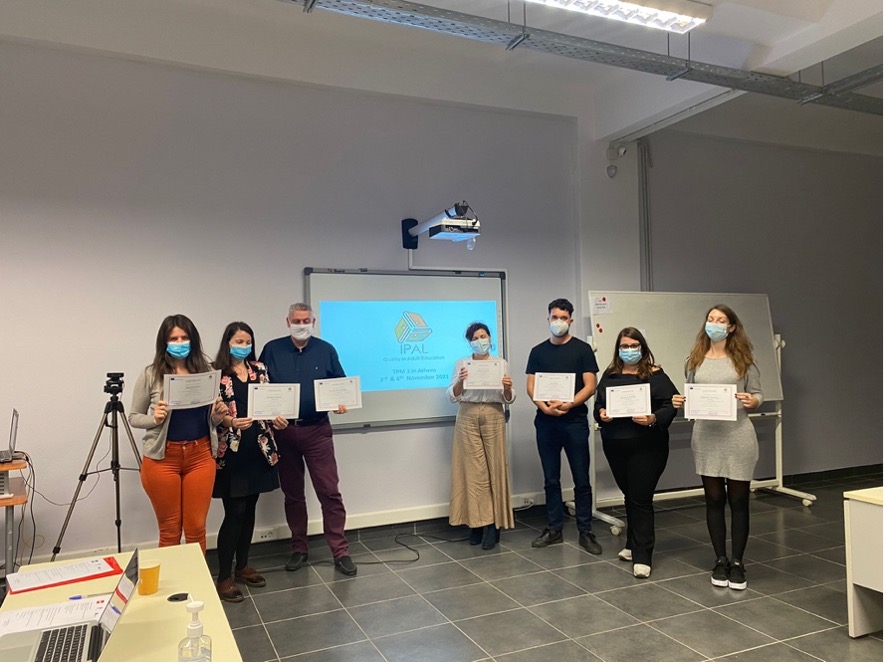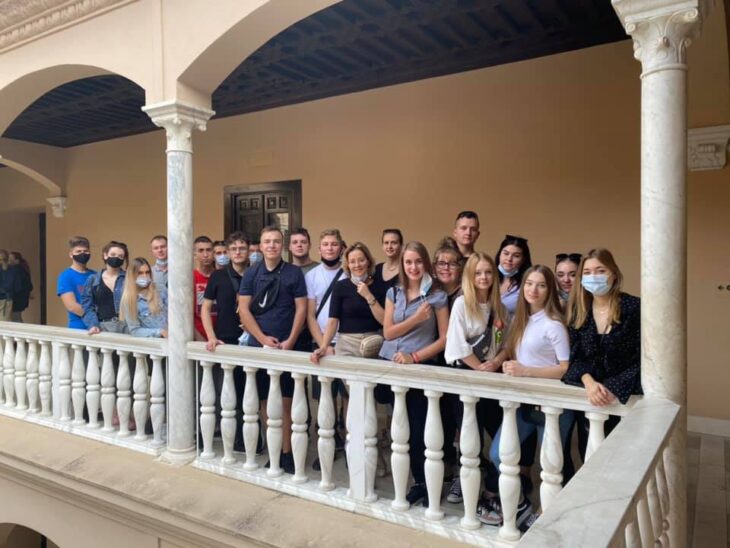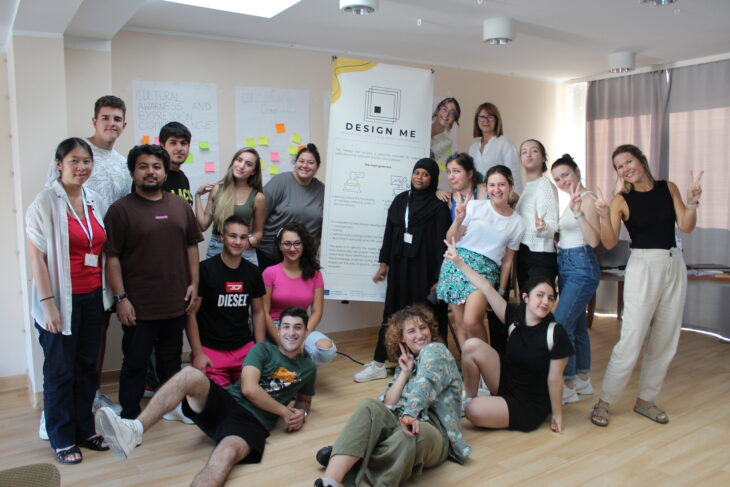On the 3rd and 4th of November, all the partners from Bulgaria, Germany, Italy, and Greece attended the third Transnational Meeting in Athens for the Erasmus+ KA2 IPAL project coordinated by Tribeka Trainig Lab.
What is IPAL?
The aim of the project is to develop quality assurance tools and training resources that promote the professional development of adult trainers and high quality of adult education.
The IPAL project partners have completed the Intellectual Output 1: the scorecard and the screening questionnaire on adult education providers’ performance focused on their professional development.
In the frame of our qualitative research to develop this output, partners conducted more than 100 interviews with adult education providers and adult trainers to identify important areas of CPD that should be taken into account to accommodate their professional needs and improve organizational capacity.
Based on the analysis of data collected, the IPAL consortium under the guidance of the output leader, Wisamar, developed a self-assessment tool for adult education providers with regards to CPD. The self-assessment tool consists of 4 sets of questions that cover the following thematic areas: Financing of CPD, Future Orientation, Internal Aspects, Public Image. So, if you are an education provider and you want to improve your training programme and develop the skills of your staff you cannot miss this opportunity: check out the Self-Assessment Tool for Adult Education Providers here.
Once you submit your answers you will receive a downloadable customized scorecard with useful information and tips!
During the meeting, the working group also discussed the content and the structure of the Intellectual Output 2 which consists in 8 modules related to teaching methods and techniques in adult education:
- the flipped classroom approach;
- project-based learning;
- techniques for stimulating the logical thinking, imagination and memory;
- effective techniques for communication and work with parents and family members of adult learners;
- applying creativity techniques in adult education;
- using interactive (online and digital) resources, e-learning tools and social media in adult education; ICT-based tutoring services, pedagogies and practices;
- monitoring adult learners’ performance;
- culturally responsive teaching techniques.
The modules will be approbated and uploaded on the IPAL e-learning platform, so stay tuned!
We invite you to visit our website and enter your e-mail address on the Newsletter section to receive our newsletter!



















